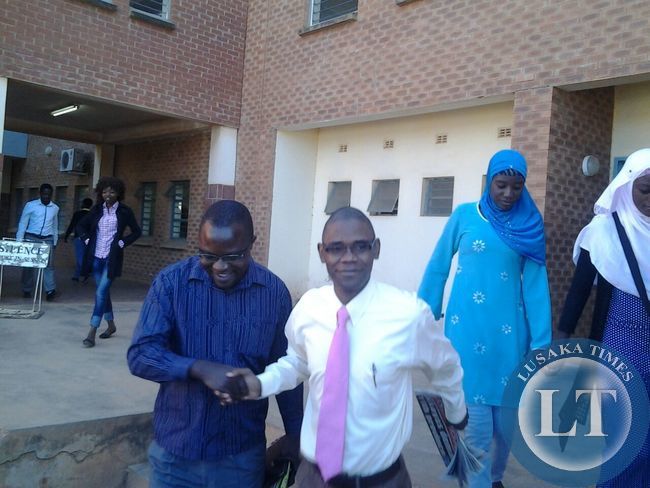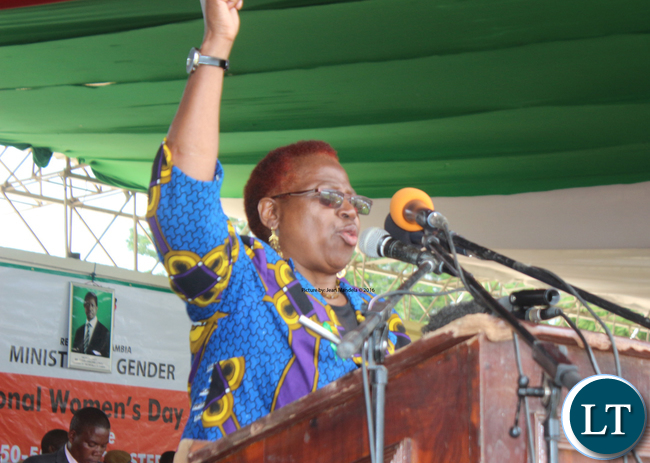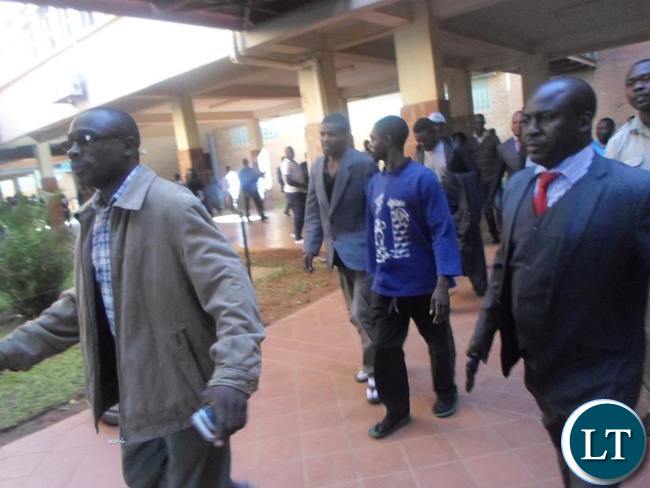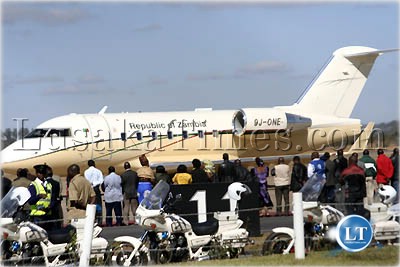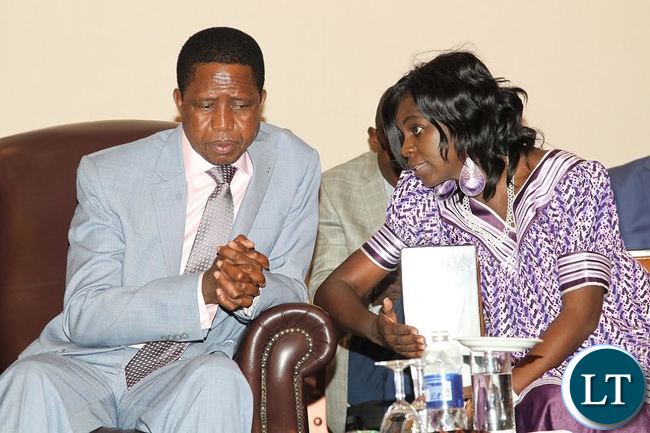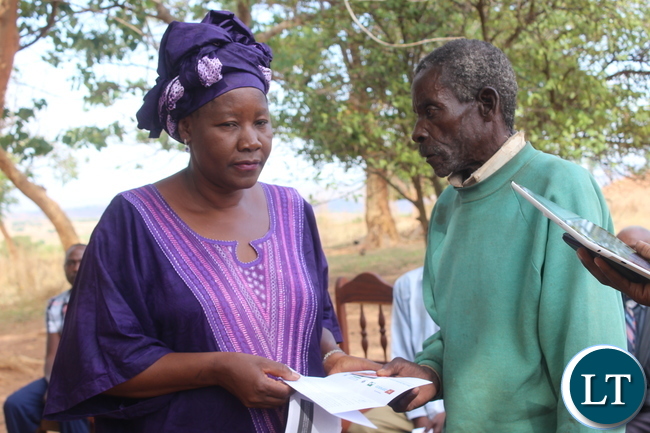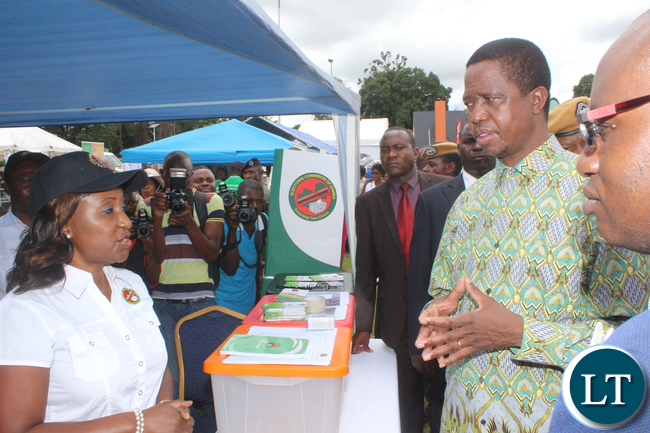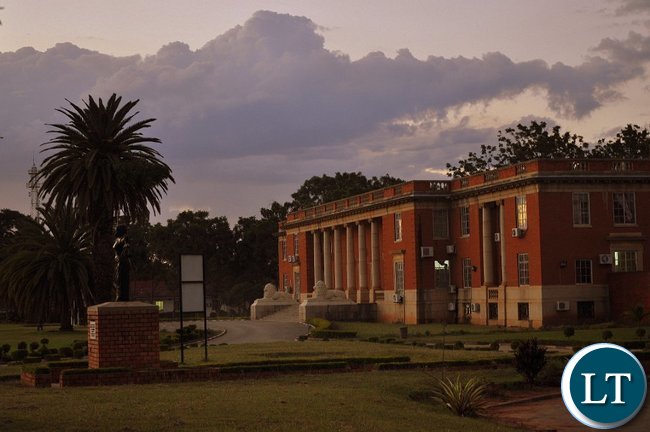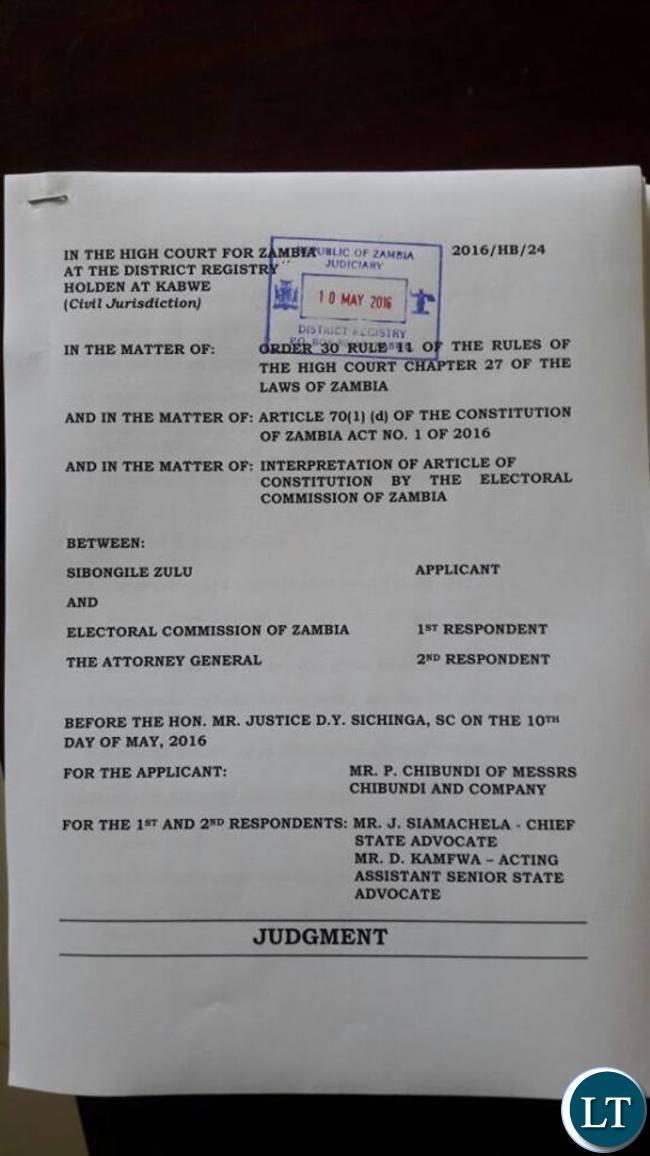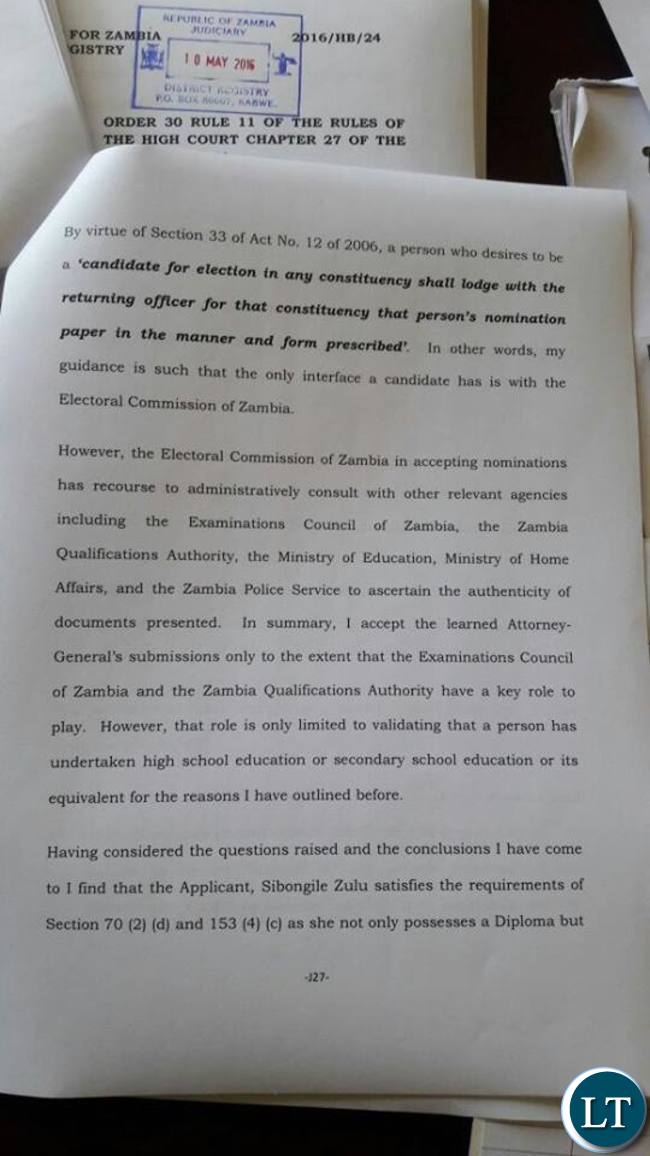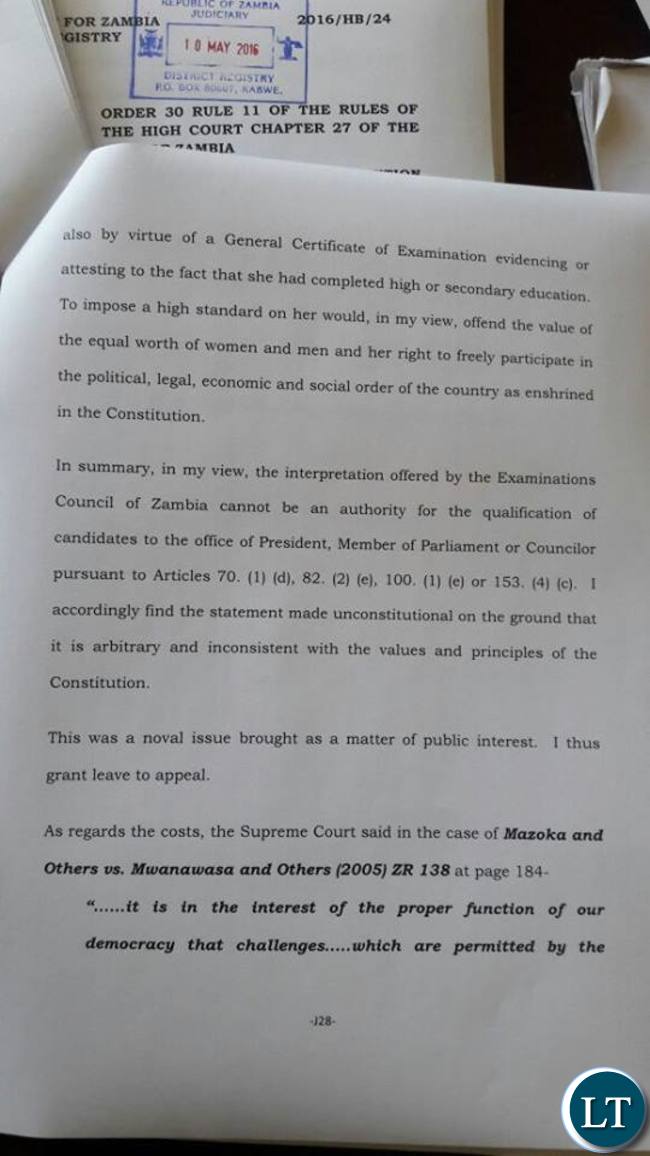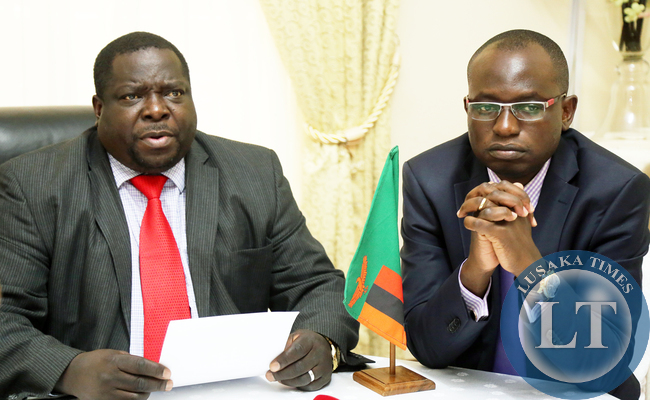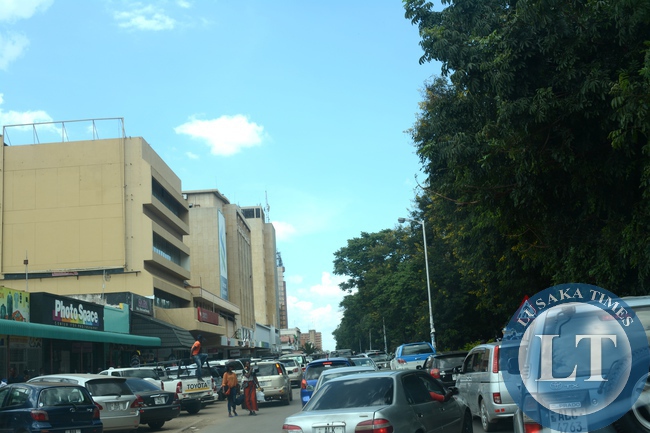
By Kalima Nkonde
There is no doubt that the country is going in the wrong direction from the economic point of view at least. There seems to be no convincing and coherent plan from the current government to get us out of the hole. The once healthy Zambian economy is seriously sick with multiple economic ailments.
The economy has deteriorated in the last four and half years due to a combination of factors like the drop in the price of copper, the strength of the United states dollar, power shortages and to a large extent sheer economic mismanagement and incompetence. The strategies I have outlined are for the short term so as to have immediate impact. The onus is on government to have short term, medium term and long term economic plans.
I have identified and isolated six deadly economic diseases which I have termed – the 6Ds – that our country is suffering from and suggested a few solutions. The diseases are:
Deficit(budget/trade),
Depreciation ( loss of kwacha value),
Debt (excessive Government borrowing),
Depression ( low economy activity) ,
Diversification (over dependency on copper) and
Discipline(poor financial management discipline)
The effects and impact on the Zambian society which includes households and businesses are: high cost of living(inflation),unemployment( lack of jobs), high cost of borrowing, low business confidence and high poverty levels.There is a feeling of hopelessness as there seems to be neither inspiration nor direction coming from the top assuring us that things will get better soon!
Although Government has announced some policy measures in the budget for 2016 as well as in the 26 November, 2015 President’s press conference, there has not been any political will to implement them in earnest due to the impending August, 2016 election. We have been told about the IMF programme but it has been shrouded in secrecy leaving many commentators to merely speculate. This has led to more uncertainty as to what is in store for Zambians after elections.
Zambia under UNIP in the 1970s and 80s and now under the PF in the 21st Century is a clear cut case study on how a functioning economy and a resource endowed country can be ruined by sheer mismanagement, incompetence, economic and political populism and poor leadership.
It is crystal clear that since the election campaign is already underway albeit informally, any meaningful economic recovery plan can only come after the august 11 election.
This article is, therefore, is meant to help whichever administration will be in power after August 11, 2016, to clearly identify the priority short term strategies with a view to laser focus on them in order to achieve the quickest possible impact on the suffering Zambians.
The key objectives of my proposed recovery strategies are: Job creation, stabilization of the kwacha, lowering the cost of living, lowering the cost of doing business, the restoration of business confidence and reactivation of economic activity so as to change our country’s economic trajectory.
I will discuss each of the six diseases of the economy that I have isolated and recommend some possible short term measures that can be employed to cure them. The approach I have taken as always is to simplify our economic problems and the solutions required, so that a man on the street and can read simple English including our politicians and legislators without grade 12 can understand! Although I taken a simplistic approach, economics is a complex subject and the variables that I am going to discuss are inter –related. I would, therefore, hasten to put the usual economics caveat on my suggested solutions, ceteris paribus (others things equal).
Deficit reduction strategies
The first disease and the mother of all our economic diseases is the government budget deficit which simply means the government is spending more that it is able to earn. At the last publicly available count, government expenditure had exceeded the budget by 135% or K20 billion.The causes are well documented and i have covered them in my previous commentaries.
In order to reduce the budget deficit, the pre requisite is the acceptance that indeed, this is a serious disease and we need to accept the painful medicine required for us to get healed. The need for political will to implement the recovery measures is, therefore, imperative. There is need for decisive leadership in the ilk of Barack Obama and John Magufuli and not flip floppers to implement the painful measures required.
The corrective measures on the expenditure side should include the cancellation and postponement of infrastructure projects – abandonment of infrastructure projects without immediate economic benefit. In addition, measures aimed at gradually reducing the public sector wage bill through limiting wage awards or reduction of the numbers and freezing the hiring of civil servants apart from health and education should be considered.The audit of the public sector payroll to identify ghost workers would be an important measure.
There should be a need to cut on the hefty salaries, exorbitant allowances and extravagant privileges such as posh SUV cars, phone bills, and health and education weavers that Ministers, senior civil servants and constitutional office bearers enjoy.
Zambian senior civil servants and ministers enjoy extravagant life styles better than those of richer countries like Botswana and Namibia! And this has to come to a stop. President Magufuli in Tanzania is doing just that and showing the way and a Zambian President is advised to take a leaf out of his book. It is common knowledge that cost cutting measures are likely to be effective if it is led by the President. He has to be cost conscious. The President should reduce his motorcade, his entourage and the bureaucracy at the Presidency like housing Public Private Partnership office at State house which just increases perception of corruption.
On the revenue side, in order to reduce the budget deficit, tax collection is the key and Zambia Revenue Authority is at the center of the equation. Zambia has potential to raise more tax revenue by employing prudent policies and practices that improve tax revenue administration and enforcement of the law. Tanzanian President has just proved it with revenue collection up by over 300%!
First and foremost, there is need to restructure and strengthen Zambia Revenue Service (ZRA) and restore its independence from political interference. The ZRA should be supported by providing it with adequate funding for infrastructural and technological development and operations. ZRA has proved to be an effective tax collector and has exceeded its targets most of the time since it was formed, but it is inadequately funded to enable it enforce legislation and administrative procedures. The domestic revenue solution is so important that I will have to write a separate article in the coming weeks to outline my thoughts in detail.
Debt management strategy
The total public debt has increased from $3.5billion in 2011 to about $9.75billion an increase of 176%. The foreign debt has increases from $1.2 billion when the PF took over in September, 2011 to $6.05 billion in July, 2015 which is an increase of 404% in four years. These are massive increases which have had a negative impact on the economy. We, however, have not had a seriously constituted debt management strategy.
According to Bode Agusto, the founder of Nigeria’s first domestic rating agency who set up the Nigerian government’s Debt management office (DMO) in the early 200s, “If you are going to borrow aggressively, you need a good DMO.”
It is a fact that when a country enters the Eurobond market, disciplined debt management which is based on sound institutions to be able to manage the risk is crucial and Zambia does not have that yet and we needed it like yesterday.
There is no doubt that there is need for Zambia to develop a prudent borrowing strategy and it is important that a Debt management office (DMO) is set up to strengthen government risk management practices including the reduction of its exposure to contingent liabilities by minimizing government guarantees to State owned enterprises. The debt management strategy should encourage concessional borrowing from multilateral and bilateral institutions rather than commercial borrowings from the capital market
It is well documented that excessive domestic borrowing by Government is one of the causes of unemployment in Zambia and the high interest rates. It follows that one of the short term strategies to address the excessive public debt is to aggressively restructure ZRA and reform tax system so as to increase domestic revenue by a tenfold and pay off the bulk of domestic debt so as to release funds to the private sector for investment and job creation. This can easily be done with political will. It is not rocket science. Lagos State in Nigeria did it and so did South Africa in 1994.
Depreciation of the kwacha
Our currency, the kwacha has had such a beating in 2015. The kwacha has been one of the worst performing currencies in the world in 2015. Kwacha has fallen by over 77% from K4.95 in 2011 when PF took over to K9.75per USD in 2016. The combination of external factors and mismanagement has been the causes of the drop in the value of the kwacha.
The unbridled trade liberalization has made Zambia to depend on imports for virtually everything. The appetite for imports means that the demand for foreign currency has been putting pressure on the kwacha.
The short term solution to strengthen the kwacha, to a large extent depends on the improving the balance of payments and the IMF program should be one of the solutions to address the balance of payment problems since we are dire straits!
The other short term measures that should help stabilize the value of the kwacha should include: import substitution and the ban of unnecessary and non essential imports, suspension of infrastructure contracts with foreign owned companies who have been externalizing millions of dollars.
Aggressive promotion of non tradition exports that can yield immediate results will be required. The agriculture sector should be the key target as the turn around for most products are 4- 6 months! In the light of the expected massive shortage of maize in the region, irrigated winter maize targeted at huge markets like DRC, South Africa, Angola can bring in massive foreign exchange. The Government needs to work closely with the private sector if these strategies have to succeed.
We should revisit SI55 and discuss with private sector so that illicit foreign exchange outflows can be stemmed. This should not construed as the re-establishment of exchange controls and it should be explained to the public. The original SI55 was an over kill without proper thresholds. Botswana and South Africa do require more disclosure for externalization of amounts above certain thresholds. The central Bank has to have a means of monitoring inflows and outflows foreign exchange and act as deterrent to those who are abusing our liberal forex regime.
Depressed economy reinvigoration
The term depression for the purpose of this article is not the technical meaning of the word as it is economics text books. It is simply referring the decline in economic activity with cut back on production and investment by businesses both local and foreign due low shortage of power, inconsistent government policies which have created uncertainty. The evidence in the down turn of economic activity is crystal clear. Whereas a 7.0% growth rate was forecast in the budget for 2015, the actual expected is about 3.0% as per IMF which is decline of over a 50%. This has resulted in increased unemployment, depreciation of the kwacha and lower government revenue.
In the short term in order to restore economic activity, the cure lies in the restoration of business confidence, implementation of monetary policies aimed at reducing inflation and cost of borrowing as well as measures aimed at ending the energy crisis.
The restoration of business confidence is one of the most important solutions in addressing the issue of the depressed economy. Most economic observers, diplomats, experts, investors currently have a negative sentiment on Zambia and its economic prospects under the current administration due to its poor performance, policy inconsistency and governance issues.
Among the measures that should be taken to improve business confidence include the restoration of the rule of law, political will from the president to fight corruption, addressing governance issues, curbing political violence, appointment of a credible and internationally well respected finance minister whose integrity is not in question. The finance Minister appointment of is crucial as recent events in South Africa showed.
Another measure to restore business confidence is to for government to engage the Private sector. The Private sector is what drives the economy. It is vital that formal meetings are arranged with their representative organisations in the various sectors so that they could be asked for short term solutions for the economy as they relate to their sectors. The Private sector in Zambia at the moment feels the Government does not consider them important as there is hardly consulted unless there is a crisis and this has resulted in a toxic relationship and contributing to the poor economy.
The Bank of Zambia should relentless continue working hard to put in place monetary policy instruments to bring inflation down and consequently the cost of borrowing if we hope for economic activity to pick up as quickly as possible.
Discipline in public sector financial management
In order to address the weak public sector financial management and waste, measures to reform and strengthen the public financial management system are required. The measures should aim at establishing the credibility, predictability and control over budget execution. The government launched the Public Financial Management Reform strategy in 2013 but there is very little to show for it. Any financial management reform should aim at modernizing the system so as allow public sector officials and managers to be held accountable and to ensure the elimination of waste and corruption.
The only way any Public sector financial management reform can work is by backing it up with strong legislation like the South Africans did by introducing a robust Financial Management Act. The enactment of a new financial management act should be a top priority. The purpose of the act would be to ensure among other things, that wasteful, fruitless, irregular, unbudgeted and over expenditure are treated as financial misconduct offences subject to disciplinary action. This will help restore budget credibility and avoid cost overruns and accumulation of expenditure arrears.
Diversification of economy in short term
The diversification of the economy from copper mining to tourism, agriculture, energy and manufacturing require medium to long term policies. There are measures, however, that can be made in the short term which will immediately put the country on the diversification path especially in agriculture and tourism. I will only focus on these two sectors especially that they could be a source of mass employment both skilled and skilled for our people.
There is no doubt that if a substantial amount of the billions of dollars that were borrowed had been pumped into agriculture sectors like aquaculture, livestock and crop farming, within six to twelve months, results will have started showing. This is what should be done! We should have ambitious, massive agriculture investment now!
It is vitally important to ensure that when policies for agriculture diversification are being made, there are not only focused on production but the entire value chain. The policies should include tax incentives and subsidies for production, provision of extension services and assistance for finding a market for agriculture products from farmers especially the small scale farmers . The Lukulu farmers in Western Province have recently been crying to government for a market for their cassava and they are not the only ones. Finding a market for the produce of small scale farmers is crucial for any agriculture policy to succeed.
MMD government under Dr. Frederick Chiluba turned around the transport sector in 1990s by providing temporary tax incentives for importation of buses after the collapse of United Bus Company of Zambia.The same can be done for the agriculture sector by ensuring agribusinesses and processors of agriculture products are given attractive tax incentives. Tractors, irrigation equipment, poultry equipment, aqua industry equipment and others should be given generous tax rebates so that we can provide even the smallest peasant farmer with a means to mechanize some basic tasks so as to increase production.
The involvement of the private sector players like Zambia National farmers Union (ZNFU) who have over 700,000 members in the agriculture industry’s short term strategy formulation is crucial as they know the industry better than government bureaucrats.
Zambia’s current tourism strategy is not achieving the desired goal of economic diversification because it is entirely based on international tourism promotion to the exclusion of domestic tourism promotion. There is no domestic tourism strategy in place and hardly any marketing budget for the sub sector and almost all the funds are directed at the promotion of international tourism. Zambians and Zambian residents ( foreigners) have no information about the available tourism sites in the various parts of Zambia apart from Livingstone! The Zambia Tourism Agency’s domestic marketing efforts need to cast the net wider in order to promote group and mass tourism market segments such as marine tourism, education tourism, business tourism and family tourism etc.
Promotion of domestic tourism is the fastest way to diversify the economy through tourism and to create jobs. The trend across the world amongst the top tourism destination countries such as Spain, France, UK, USA, and China Malaysia etc in recent years, especially after 2008 financial crisis, has been the promotion of a strong and vibrant domestic tourism sector.
At the moment, there are very low occupancy rates in most Zambian owned hotels, lodges and guest houses. The capacity utilization by most tourism operators in Zambia averages about 40% according to the World Bank study. This has resulted in excess or surplus bed nights which could be a source of potential jobs!
In the short term, the following actions will have immediate economic impact in terms of job creation and increased economic activity: The Zambia Tourism Agency (ZTA) can realign its marketing budget and allocate more resources for the aggressive marketing of domestic tourism destinations , the Ministry of Tourism and Arts through the Industrial Development Corporation(IDC) can engage indigenous Zambian private sector aviation operators with a view to introduce more players in domestic air travel market so as to make air travel affordable thereby promote domestic tourism unlike now when you have a monopoly operating and charging ridiculous airfares! ZTA should also assist Micro, Small and Medium Enterprises with sales and marketing skills through workshops and seminars to encourage them to engage in marginal costing pricing strategies during off season by offering specials and other incentives in order to increase occupancy.
CONCLUSION
The purpose of the article has been to make us think outside the box and avoid being too theoretical about solutions to our economic problems but rather practical. The suggestions made here are not exhaustive by any means. I have simplified the economic diseases that our country faces and I therefore invite my fellow Zambians of all political persuasions to make suggestions on what should be done to turnaround the economy using the six categories I have identified. I do not want the debate to be politicized!
The writer is a Chartered Accountant by profession and a financial management expert. He is an independent and non partisan commentator/analyst. He has lived in the diaspora in England, South Africa and Botswana for over 25 years before returning home two years ago.


